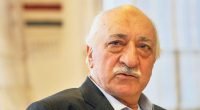The view from Brussels

Date posted: February 23, 2014
ŞAHİN ALPAY
I was in Brussels last week. On Wednesday, I spoke on the current state of affairs in Turkey during a “Turkey Debate” roundtable meeting organized in the European Parliament (EP).
It was hosted by MEP İsmail Ertuğ and attended by MEPs Andrew Duff, Metin Kazak and Filiz Hyusmenova. On Thursday and Friday, I gave two lectures at Belgium’s Leuven University upon the invitation of the Fethullah Gülen chair of the anthropology department. The former lecture was titled “What went right and wrong in Turkey?” and was addressed to graduate students while the latter was titled “Is Turkey a secular state?” and addressed a Ph.D. seminar.
As usual, I contacted members of the European Parliament and European Commission (EC) officials in Brussels with expertise in Turkish affairs. British liberal MEP Andrew Duff summarized quite well how Turkey is currently viewed in Brussels. Duff, speaking during the Turkey Debate meeting, stated that the European Union has never before been as close as it is now to considering the possibility of suspending accession talks with Turkey.
He said following the passing of legislation on the Internet and the Supreme Board of Judges and Prosecutors (HSYK), doubts have been increasing in Brussels about whether the Justice and Development Party (AKP) government is truly interested in EU membership, whether Prime Minister Recep Tayyip Erdoğan really understands the importance of the separation of powers in a democracy and whether he is behaving like a statesman.
He asked me what I would advise the EU to do in face of the increasing authoritarianism of the Erdoğan government. In brief, I responded by saying that the suspension of accession talks would be a terrible idea, but that the EU should not hold back from well-deserved criticisms and warnings.
The main impressions I received in Brussels regarding the views on Turkey are the following: The allegations by the pro-government media in Turkey that Erdoğan convinced European leaders during visits to Brussels and Berlin that the graft investigation is a fraud and merely a coup attempt against his government organized by outside powers and operated by the Gülenist “parallel state” is not in the least bit the case.
The idea in Brussels, like among all sound-minded people here in Turkey, rather, is that the Erdoğan government is using the “parallel state” conspiracy theory as a pretext to suppress the investigation into the gravest bribery and corruption charges in the history of the country and destroy the achievements of the last 10 years in terms of democracy and the rule of law. It appears that the view in both the EP and the EC is that the EC’s decision to start accession talks with Ankara in 2005, based on the assessment that it has “sufficiently” fulfilled the Copenhagen political criteria, is no longer valid.
Despite that common view, it seems that a suspension of talks is not on the agenda, at least for the time being, mainly because the hope that Ankara will fix itself is not yet lost. It was emphasized that once a decision to suspend talks is taken, it would be nearly impossible to reverse it. It was also pointed out that Germany and France in particular attach importance to trade relations with Turkey and will not take any steps to endanger the re-emerging possibility of a comprehensive solution to the Cyprus problem that would open the way to EU-NATO cooperation. It was underlined, on the other hand, that both the EP and the EC would continue to issue critical reports on measures that threaten democracy and the rule of law in Turkey. There should be no doubts as to how such reports will affect Turkey’s image in the world.
The EU officials I contacted believe in general that Prime Minister Erdoğan has set himself on an irreversible path that is very unlikely to serve his political career. There is also disappointment with President Abdullah Gül due to his endorsement of the Internet censorship law and his likely endorsement of other authoritarian legislation considered by the AKP government. One of those I spoke to said, “I had all along thought that Gül was the good cop, but apparently that is not the case.” I heard no regrets being expressed about Mr. Egemen Bağış, who was often referred to as the “anti-EU minister,” losing his seat in the Cabinet due to the graft investigation, but heard complaints about new EU Affairs Minister Mevlut Çavuşoğlu, who “does not talk about anything else other than the parallel state,” which does not raise much interest.
Source: Todays Zaman , February 23, 2014
Tags: Europe | European Union | Hizmet (Gulen) movement |
























